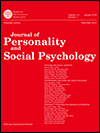Motivated by the Attachment Security Enhancement Model (Arriaga et al., 2018), the present research investigated the associations between positive relationship experiences and romantic attachment avoidance in three dyadic studies that combined multiple methods, including daily diaries, laboratory observations, and longitudinal follow-ups. Frequency of daily positive relationship events (but not external positive events) during a 21-day diary period predicted declines in romantic attachment avoidance (but not anxiety) from pre- to post-diary in fledgling couples (Study 1) and newlyweds (Study 2). Video-recorded discussions of fledgling couples’ shared positive experiences revealed that behaviors validating the relationship (but not simply showing conversational interest) predicted lagged declines in romantic attachment avoidance (but not anxiety) over 1 month (Study 3). The associations were mediated by positive affect during the diary period in Studies 1 and 2, and by changes in positive affect from pre- to post-discussion in Study 3. Positive relationship experiences did not significantly interact with time in predicting romantic avoidance over a 1-year follow-up with quarterly assessments of attachment orientations in Study 1, over an 8-month follow-up with monthly assessments in Study 2, or over a 2-month follow-up with monthly assessments in Study 3. Altogether, these studies provide one of the most comprehensive tests of how positive relationship experiences in nondistressing contexts are linked to romantic attachment. (PsycInfo Database Record (c) 2023 APA, all rights reserved)


